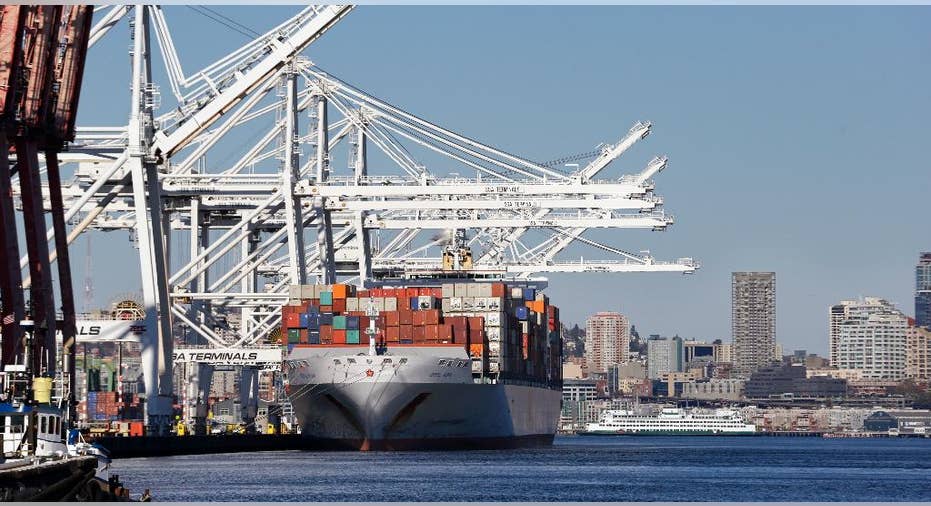US trade gap likely fell slightly in November, helped by lower oil prices

WASHINGTON – The Commerce Department reports on the U.S. trade deficit for November. The report will be released Wednesday at 8:30 a.m. Eastern.
SMALLER GAP: The expectation is that the trade deficit narrowed slightly to $41.9 billion in November, according to a survey of economists by data firm FactSet.
LOWER DEFICITS: In October, the trade deficit edged down 0.4 percent to $43.4 billion as exports rebounded while oil imports dipped to the lowest level since November 2009. The average price of a barrel of imported oil fell to $88.47 in October, the lowest point since February 2011.
Analysts believe the trade deficit will narrow further, reflecting the further declines in global oil prices seen in recent weeks. U.S. crude oil was trading below $49 per barrel early Wednesday, less than half of what it cost over the summer.
Through October, the deficit is running 4.8 percent below the same period in 2013. A lower deficit provides a boost to economic growth.
The lower trade deficit so far this year reflects the gains made in U.S. export sales, which have climbed to record levels, giving a boost to American manufacturers. But there is a concern that economic weakness in Europe and other key export markets could hold back future gains in exports.
The U.S. dollar has also been rising against other major currencies and that could jeopardize exports as it makes American products more expensive overseas.
For the year, U.S. energy exports are up 12.1 percent compared with last year putting them on track to hit a record, even with the recent fall in prices.
The politically sensitive deficit with China narrowed by 8.5 percent to $32.6 billion in October, down from a monthly record of $35.6 billion in September. The release of the new Apple iPhone likely fueled much of the surge in imports during the month.
The deficit with China is on track to set another record for the full year, creating more pressure for Congress and the Obama administration to curb what critics call unfair tactics such as currency manipulation by Beijing.
The widening trade gap with China comes at a time when the Obama administration hopes to finally get Congress to approve the fast-track authority it needs to wrap up a major 12-nation trade agreement with Pacific Rim countries known as the Trans-Pacific Partnership.
The administration sees the trade deal as one of the areas where President Barack Obama may be able to find common ground with Republicans who took control of the Senate this week and now control both chambers of Congress.



















